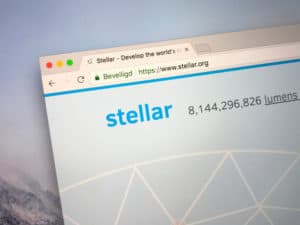2020-6-18 23:21 |
Stellar's community is preparing for a vote that will enable crypto exchanges within its ecosystem to exercise more regulatory oversight. Dubbed ‘Protocol 13', the new set of updates includes other modifications as well meant to improve the Stellar user experience. Notably, this vote is expected to take place later in the week.
In this new update, a ‘fine-grained control' approach will be enabled such that exchanges will have control over specific digital asset activity. This means that a service provider in this line can authorize for independent action on every digital currency transaction as opposed to the existing version, which affects even legitimate orders. An earlier post from the Stellar Development Foundation (SDF), had alluded that,
“Often, issuers of regulated assets want customers to be able to trade their assets, but they also need to exert a high level of control over who can hold them, how much they can hold and under what conditions they can sell or buy more,”
Stellar's Proposed Protocol 13Should the community vote to pass this initiative, onboarding securities in blockchain and crypto ecosystems might become much more accessible. Usually, the headache comes in regulation given the stringent oversight requirements by financial watchdogs like the SEC. However, Stellar's Protocol 13 now proposes a solution for this quagmire based on the ‘red flags' that allow one to “revoke authorization while maintaining orders on the books.”
Interestingly, this protocol will also provide the flexibility of altering regulations over time based on industry developments such that a counterparty can view the status,
“With fine-grained asset control, an issuer of a regulated asset can set the asset to require the new kind of authorization … and when a user wants to make a payment or new offer, the issuer can check to see if it's allowed given regulation.”
It is quite noteworthy that Stellar had already integrated block functions for exchanges to deny services to investors in sanctioned countries such as North Korea and Iran. Also, market manipulation through large stock purchases is currently limited by a 5% cap unless one fills Schedule 13(D) disclosure with the SEC.
Other UpdatesApart from the authorization update, the soon to be voted protocol 13 includes a fee bump function. This feature is meant to assist transacting parties in the quick recovery of their user fees and bump up the cost on low-value payments for settlement during high network frequency. Another feature is a ‘multiplexed' account to enable the separation of balances held by different sub-accounts under a custodial service provider.
origin »Bitcoin price in Telegram @btc_price_every_hour
Stellar (XLM) на Currencies.ru
|
|

















